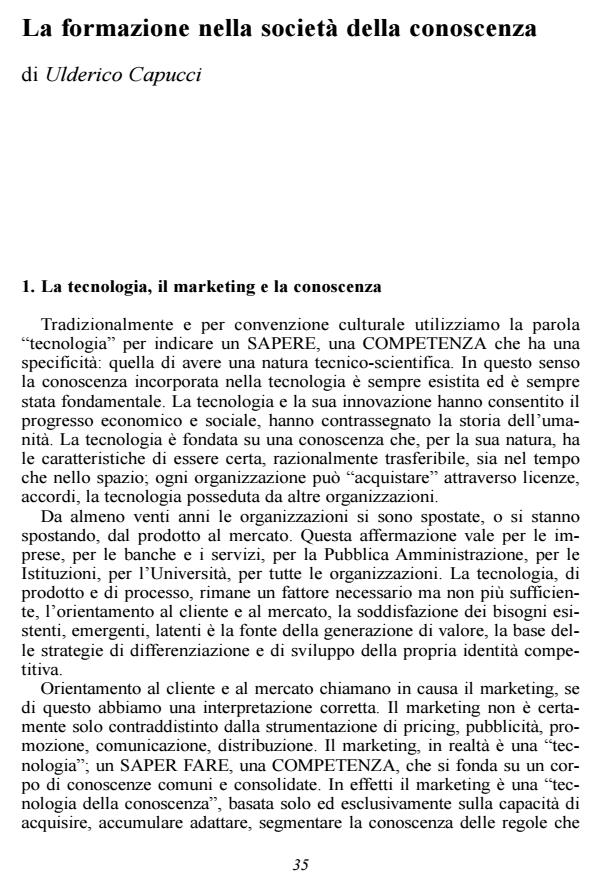La formazione nella società della conoscenza
Titolo Rivista SOCIOLOGIA DEL LAVORO
Autori/Curatori Ulderico Capucci
Anno di pubblicazione 2006 Fascicolo 2006/103
Lingua Italiano Numero pagine 23 P. Dimensione file 60 KB
DOI
Il DOI è il codice a barre della proprietà intellettuale: per saperne di più
clicca qui
Qui sotto puoi vedere in anteprima la prima pagina di questo articolo.
Se questo articolo ti interessa, lo puoi acquistare (e scaricare in formato pdf) seguendo le facili indicazioni per acquistare il download credit. Acquista Download Credits per scaricare questo Articolo in formato PDF

FrancoAngeli è membro della Publishers International Linking Association, Inc (PILA), associazione indipendente e non profit per facilitare (attraverso i servizi tecnologici implementati da CrossRef.org) l’accesso degli studiosi ai contenuti digitali nelle pubblicazioni professionali e scientifiche.
Training in the knowledge society In the society of knowledge, in knowledge arrangement, the organizational learning is more important than individual one. In the web structure society and in the processual organization, all the remarkable achievements do not result from a single subject but from the integrative relations. In the society of knowledge the training process, even if with all the relevance we want and we must assign, plays a modest role within the wider range of studies, tools and paths, with which the organizations learn. The training contributes to the creation of collective and individual competencies, both within and among the corporations, inasmuch as it operates together with real concrete professional families or communities. It stands to reason that training itself is not enough. If the training wants to contribute to the knowledge arrangement, it must enlarge the perimeter of its intervention, exit the classroom, contribute to govern the knowledge management process in its different steps and its multiple applications and tools, undertaking the role of process supporter.
Ulderico Capucci, La formazione nella società della conoscenza in "SOCIOLOGIA DEL LAVORO " 103/2006, pp , DOI: